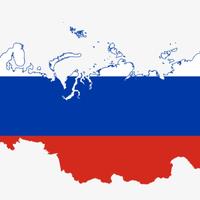15. НАСТУПИЛА ОСЕНЬ
est arrivée|
arrived|autumn
15. DER HERBST IST DA
15\. AUTUMN HAS COME
15. HA LLEGADO EL OTOÑO
15. L'AUTOMNE EST ARRIVÉ
15. È ARRIVATO L'AUTUNNO
15.秋が来た
15. DE HERFST IS GEARRIVEERD
15. O OUTONO CHEGOU
15. SONBAHAR GELDİ
15.秋天来了
15\\.
НАСТУПИЛА ОСЕНЬ
L'automne est arrivé.|
arrived|
ist gekommen|
HA LLEGADO|otoño
AUTUMN HAS COME
Послушайте этот текст сначала в медленном темпе, а затем в быстром:
||||||tempo||||
|||||lento|||||
Listen to this text first at a slow pace, and then at a fast pace:
Наступила осень.
arrived|autumn
ha llegado|
Autumn has come.
Появились первые желтые листья на деревьях.
Apparaissent|||||
appeared|first|yellow|leaves||trees
sind erschienen|||||
||amarelos|||
Han aparecido||amarillos|hojas||
Die ersten gelben Blätter an den Bäumen erscheinen.
The first yellow leaves appeared on the trees.
As primeiras folhas amarelas apareceram nas árvores.
Они медленно падают на землю, устилая её красивым разноцветным ковром.
||tombent||terre|||||tapis multicolore
they|slowly|fall||ground|covering|it|beautiful|multicolored|with a beautiful multicolored rug
|||||bedecken||||Teppich
|||||cobrindo||||
||caen||el suelo|cubriendo|||multicolor|alfombra
Sie fallen langsam zu Boden und bedecken den Boden mit einem wunderschönen, bunten Teppich.
They slowly fall to the ground, covering it with a beautiful multi-colored carpet.
Ils tombent lentement sur le sol, le recouvrant d'un joli tapis coloré.
Elas caem lentamente no chão, cobrindo-o com um belo tapete colorido.
Перелетные птицы потянулись стаями на юг.
|||en groupes||
||zogen|Schwärme||
migratory|birds|started moving (stretched out)|in flocks||south
migratórias|||||
Migratorias||se dirigieron|en bandadas||sur
Die Zugvögel sind in Schwärmen in den Süden gereist.
Migratory birds stretched in flocks to the south.
Les oiseaux migrateurs s'envolent vers le sud en bandes.
As aves migratórias partiram em bandos para o sul.
Днём еще тепло, но ночи становятся всё более холодными.
||||||||froides
during the day||warm|||become||increasingly|colder
||||||||frias
||calor|||se vuelven|||
Tagsüber ist es noch warm, aber die Nächte werden immer kälter.
It’s still warm during the day, but the nights are getting colder.
Il fait encore chaud en journée, mais les nuits deviennent de plus en plus froides.
Часто дует сильный ветер.
|souffle||
often|blows|strong|wind
|sopla viento||
Es weht oft ein starker Wind.
Often a strong wind blows.
Il y a souvent un vent fort qui souffle.
Frequentemente sopra um vento forte.
Он гонит облака, которые скрывают солнце.
|pousse|nuages|||
|chases|clouds||hide|sun
|treibt|Wolken||verstecken|
|afasta|||escondem|
|persigue|nubes||ocultan|
Sie vertreibt die Wolken, die die Sonne verdecken.
He drives the clouds that hide the sun.
Il chasse les nuages qui cachent le soleil.
Ele empurra as nuvens que escondem o sol.
Güneşi gizleyen bulutları uzaklaştırır.
Идут дожди, но не каждый день.
are falling|rains||||
|chuvas||||
|lluvias||||
It rains, but not every day.
Il pleut, mais pas tous les jours.
Estão caindo chuvas, mas não todos os dias.
Осень – это сбор урожая.
||récolte|récolte
||harvest|the harvest
||Ernte|Ernte
||colheita|colheita
||cosecha|cosecha
Der Herbst ist die Zeit der Ernte.
Autumn is a harvest.
L'automne, c'est la période de la récolte.
Outono é a colheita.
В лесу еще много грибов и ягод.
||||||baies
|forest||a lot|mushrooms||berries
||||||bayas
||||||frutas
There are still many mushrooms and berries in the forest.
Il y a encore beaucoup de champignons et de baies dans la forêt.
Ainda há muitos cogumelos e frutas silvestres na floresta.
В садах много яблок и винограда.
|dans les jardins||||
|gardens||apples||grapes
|in den Gärten||||
|||maçãs||
|||manzanas||uva
There are many apples and grapes in the gardens.
Il y a beaucoup de pommes et de raisins dans les jardins.
Nos pomares há muitas maçãs e uvas.
А у школьников осень – это начало нового учебного года.
||élèves||||||
||students|||beginning||academic|
||de los escolares|||inicio||escolar|
Und für Schulkinder ist der Herbst der Beginn eines neuen Schuljahres.
And for schoolchildren, autumn is the beginning of a new school year.
Chez les écoliers, l'automne marque le début de la nouvelle année scolaire.
E para os alunos, o outono é o início de um novo ano letivo.
А теперь послушайте этот текст в более быстром темпе.
а||||||||
|||||||fast|
Now listen to this text at a faster pace.
Maintenant, écoutez ce texte à un rythme plus rapide.
Agora escute este texto em um ritmo mais rápido.
(written and read by Evgueny40, 2015)
(écrit et lu par Evgueny40, 2015)
(escrito e lido por Evgueny40, 2015)

